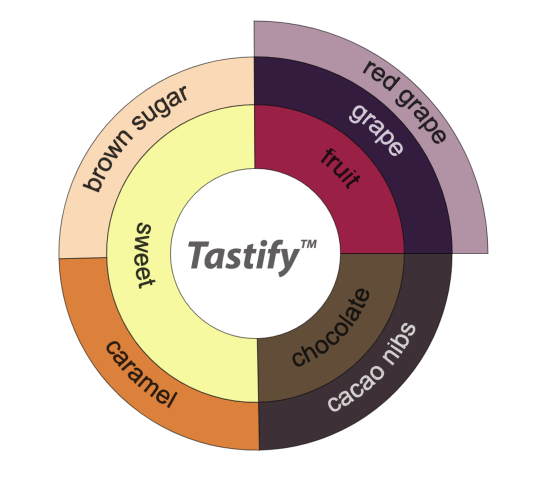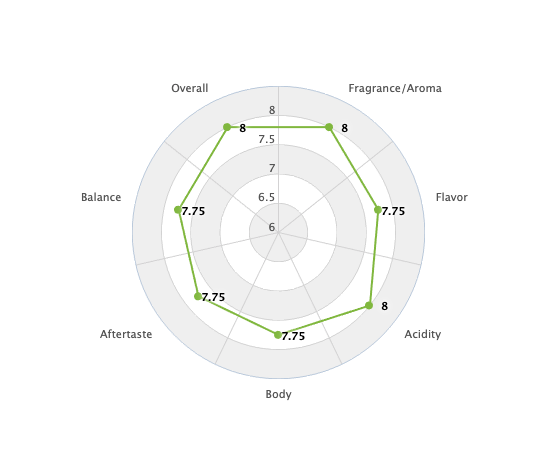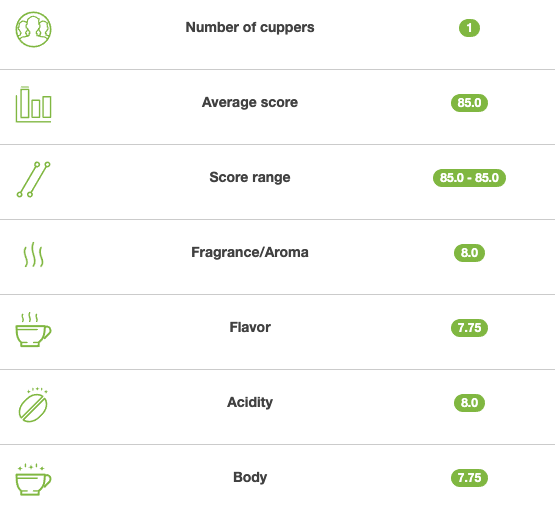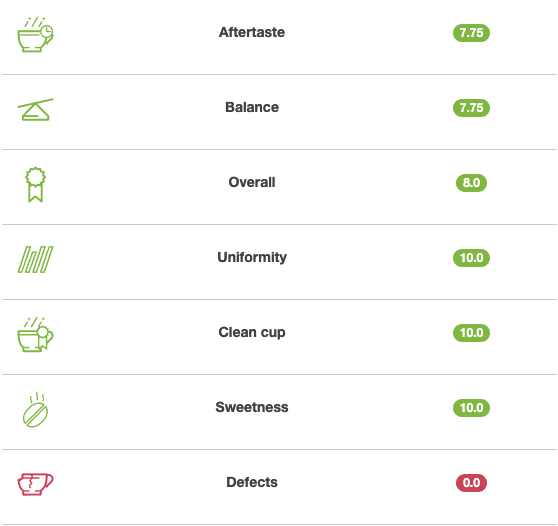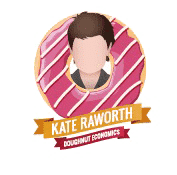
Last week Jose Mollura, Head Roaster at Moyee Coffee, became the 6th person in the Netherlands to receive a coveted Q Certification. The Q Certification, created by Coffee Quality Institute, enables individuals to identify and grade high-quality Arabica beans around the world. It isn’t just a license but a common language used by forward-thinking specialty coffee roasters. We sat down to talk to him what it means to now have the important certification in the global specialty coffee industry. Why is the Q Certification so
important? It’s a big step both for Moyee and my own coffee career. It required a lot of hours of hands-on study ending with a series of 22 tests ranging from tasting and blindly recognizing various beans to calling out specific acids. But most of all the Q Certification is a common language between cuppers around the world for various types of coffee. So many different tastes – so many. This is one language about cupping specialty coffee.
I love working on the farms and plantations. The minute I arrive I pull off my shirt and I get to work – picking, sweeping, washing, whatever needs to be done.
What’s changed now that you’re a Q Grader? It is essentially a license to score coffee, and that makes us a more trustworthy and credible brand. It will help us pinpoint new types of coffees and judge the quality of their beans more quickly. Not long ago I visited a new plantation and was told the beans scored 90, but after cupping them I scored them at 86. It makes it easier to control quality and have meaningful conversations with everyone involved. You don’t take it lightly? Being a Q Grader is a big responsibility. If you don’t respect the coffee or work closely with the farmers, you can easily lose your license. I am in Ethiopia every few weeks sourcing, cupping, blending and roasting. And as part of my responsibilities at Moyee, I am teaching our local partners in Ethiopia to roast as well. How’s that going? It is truly mind-boggling for them to experience how many different types of tastes exist in their own country. It is a unique situation, because Ethiopians are required by law to export their best beans, but because Moyee has a roaster in Ethiopia we are one of the few exceptions to this rule. They truly love it. How did you get into coffee roasting anyway? I grew up in Argentina, and when I finished high school I decided there was nothing at the university I wanted to learn. So I set out travelling across South and Central America, from one coffee plantation to the next – Brazil, Costa Rica, Bolivia. Coffee was my way to see the world. I worked on the plantations, picking beans, cleaning and washing them. I returned to Buenos Aires where I placed 2nd in the national barista competition. But at one point I wanted to explore the one side of the coffee chain I still knew too little about: roasting. That’s what eventually brought me to Europe via India and America.
The Q Certification is essentially a license to score coffee, and that makes us a more trustworthy and credible brand.
By way of India and America? India was particularly important for me, because I went there to study Monsooned Malabar, a truly unique Indian Arabica coffee purposely exposed to the salt and sea winds and then stored in seaside warehouses throughout monsoon season. The process imitates the historic voyage between India and Europe around Africa, which before the opening of the Suez Canal took six months. I was truly curious about this bean and spent a year and a half working there. During this time I also rediscovered a new passion: traditional sewing by hand. Like coffee, it’s a true craft. And when I’m not working with coffee I’m hand-sewing bags.  And then you joined Moyee Coffee in Amsterdam. Coffee is a commodity, but it is also a philosophy. When you’ve spent as much time on coffee plantations as I have you realized that the farmers are grossly underpaid. It’s categorically wrong that there are people in the coffee chain that earn more than the farmers without ever seeing a single bean. This is a problem with all commodities, but coffee just happens to be the most human and emotional of them. With its FairChain coffee Moyee is offering the world a solution to a serious problem, and I can contribute. Is paying farmers more the ultimate solution then? It’s not just paying farmers more, it’s also educating them. That’s what we’re doing with our roaster in Ethiopia – teaching Ethiopians how to be more knowledgeable about their beans and more self-sufficient as entrepreneurs. On top of this Guido [Moyee’s founder] is in the process of finalizing a coffee farm in Ethiopia that will educate both local farmers and their families. That a specialty brand like Moyee is doing this, is important. The focus is now Ethiopia, but will you bring FairChain to other countries? We’ll soon introduce FairChain to Central America. I know the plantations there well and am familiar with coffee profiles, which are so different from Ethiopia. South America is interesting for us, too. It is important for Moyee to expand in order to offer a more complete range. I’m in charge of sourcing the new coffees and quality controlling them, and I couldn’t be happier. So a coffee journeyman for life? I love working on the farms and plantations. The minute I arrive I pull off my shirt and I get to work – picking, sweeping, washing, whatever needs to be done. I even enjoy sleeping on the floor with the other workers. Some buyers like to quickly fly in and leave, but I prefer to linger. Because even now, years later, I am still learning the trade. Every harvest is different, every bean has its own story. The closer I am to the source the more I can learn. How are you going to celebrate your Q Certification? [Smiling] I’ve already celebrated! But if you ask me how I’d really like to celebrate, then I’d say by opening up a micro-roaster/atelier here in Amsterdam. A place where I can import coffee from all over the world – specialty varieties, small roasts, exclusively 90 points and above, and all only available in the atelier. People would be required to drink the coffee on the spot rather than take it home, so I can prepare it perfectly. Nothing like that exists here in Amsterdam, or in Europe for that matter. And if I really
And then you joined Moyee Coffee in Amsterdam. Coffee is a commodity, but it is also a philosophy. When you’ve spent as much time on coffee plantations as I have you realized that the farmers are grossly underpaid. It’s categorically wrong that there are people in the coffee chain that earn more than the farmers without ever seeing a single bean. This is a problem with all commodities, but coffee just happens to be the most human and emotional of them. With its FairChain coffee Moyee is offering the world a solution to a serious problem, and I can contribute. Is paying farmers more the ultimate solution then? It’s not just paying farmers more, it’s also educating them. That’s what we’re doing with our roaster in Ethiopia – teaching Ethiopians how to be more knowledgeable about their beans and more self-sufficient as entrepreneurs. On top of this Guido [Moyee’s founder] is in the process of finalizing a coffee farm in Ethiopia that will educate both local farmers and their families. That a specialty brand like Moyee is doing this, is important. The focus is now Ethiopia, but will you bring FairChain to other countries? We’ll soon introduce FairChain to Central America. I know the plantations there well and am familiar with coffee profiles, which are so different from Ethiopia. South America is interesting for us, too. It is important for Moyee to expand in order to offer a more complete range. I’m in charge of sourcing the new coffees and quality controlling them, and I couldn’t be happier. So a coffee journeyman for life? I love working on the farms and plantations. The minute I arrive I pull off my shirt and I get to work – picking, sweeping, washing, whatever needs to be done. I even enjoy sleeping on the floor with the other workers. Some buyers like to quickly fly in and leave, but I prefer to linger. Because even now, years later, I am still learning the trade. Every harvest is different, every bean has its own story. The closer I am to the source the more I can learn. How are you going to celebrate your Q Certification? [Smiling] I’ve already celebrated! But if you ask me how I’d really like to celebrate, then I’d say by opening up a micro-roaster/atelier here in Amsterdam. A place where I can import coffee from all over the world – specialty varieties, small roasts, exclusively 90 points and above, and all only available in the atelier. People would be required to drink the coffee on the spot rather than take it home, so I can prepare it perfectly. Nothing like that exists here in Amsterdam, or in Europe for that matter. And if I really
got my way I’d have people pay for their cup of coffee in a way that immediately transfers a fair amount to the farmer who grew it. That way people would understand the impact as they are drinking their coffee. It would close the emotional gap. It would make FairChain tangible.  What are the chances that’s going to happen? Let’s just say Moyee’s new micro-roaster arrives next month, and our first micro-lot of 90+ coffee from Kaffa arrives soon after that. I was involved in every aspect of this lot – picking, washing, cupping and roasting, so I can tell you absolutely everything about this coffee, absolutely everything. That’s a reward in itself.
What are the chances that’s going to happen? Let’s just say Moyee’s new micro-roaster arrives next month, and our first micro-lot of 90+ coffee from Kaffa arrives soon after that. I was involved in every aspect of this lot – picking, washing, cupping and roasting, so I can tell you absolutely everything about this coffee, absolutely everything. That’s a reward in itself.
